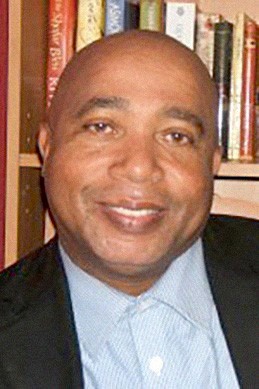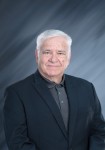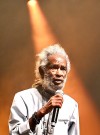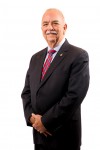Dr Livingston Smith
- Job Market
- Upload Ad Requests
- Rates
- Home
- Video
- About Us
- Contact Us
- Business Showcase
- Archives
- Blogs
- Upload Advertisements
- Video News Release
- Front Pages
- Community Notices
- Law Enforcement
- Government
- Community Voice
- Health Care
- International
- Sports
- Politics
- Community
- Entertainment
- Advertorial 2
- Non-Profit Organisation(NPO)
- Adopt a Pet
- Tourism
- CIIPO
- Taste of Class
- Opinions & Editorial
- Environment
- Outstanding Employee
- Outstanding Performance
- Celebration
- Gardening
- Beneficial Ownership
- Tips and tricks
- Cover Stories
- Cost of Living
- Development
- Employment
- Education
- Arts and Culture
- Business
- Global News Briefs
- Hurricane Watch
- Breaking News
- Regional
- Public Notices
- Local News
- Lifestyle
- Finance
- Economic
- Election Center
- COVID - 19
- UK Territories
- Advertorial
- History
- Inspiration
- The Panel
- The Interview
- Cayman Conversation
- Community Notices
- Law Enforcement
- Government
- Health Care
- Sports
- Election Center
- Cayman Conversation
- More
- Front Pages
- Community Notices
- Law Enforcement
- Government
- Community Voice
- Health Care
- International
- Sports
- Politics
- Community
- Entertainment
- Advertorial 2
- Non-Profit Organisation(NPO)
- Adopt a Pet
- Tourism
- CIIPO
- Taste of Class
- Opinions & Editorial
- Environment
- Outstanding Employee
- Outstanding Performance
- Celebration
- Gardening
- Beneficial Ownership
- Tips and tricks
- Cover Stories
- Cost of Living
- Development
- Employment
- Education
- Arts and Culture
- Business
- Global News Briefs
- Hurricane Watch
- Breaking News
- Regional
- Public Notices
- Local News
- Lifestyle
- Finance
- Economic
- Election Center
- COVID - 19
- UK Territories
- Advertorial
- History
- Inspiration
- The Panel
- The Interview
- Cayman Conversation
Subscribe
Beyond Employment: An Examination of the Purposes of Tertiary Education – Part One
Dr Livingston Smith

As global economies evolve, there is increasing pressure on higher education institutions to produce graduates who are immediately “work-ready” and capable of meeting the demands of the labor market. Universities must share the concern of industry that their programmes should be maximally focused on employability.
Employability is often narrowly defined as possessing industry-specific skills or certifications that demonstrate proficiency in certain tasks or tools, the ability to pivot across roles or industries as the market demands, and being digitally and technologically savvy.
Today, higher education is framed around a core question: What will the student do with this degree? What does the workplace require, and how does the university align itself with industry’s current needs and its vision for the future? In brief, the university’s role is seen as workforce preparation — embedding job-ready skills in students to meet market demands.
But this must be only part of the university’s role — and part of the purpose of education. There is, too often, an unnecessary tension between what students must be prepared to do and what they should become. This strain between employability-focused education and holistic educational goals is the focus of this article. While employability is vital, I am suggesting that its overemphasis risks undermining the broader purposes of education.
By the broader purposes of education, I mean intellectual growth, critical thinking, personal and social development, active citizenship, historical and civic knowledge, and ethical reasoning for effective participation in a free democracy. Education should ignite a lifelong curiosity — an inquisitiveness that endures to the grave. It should stretch the imagination, sharpen the intellect, and enlarge vision. It should cultivate the ability to express, argue, expound, and explore relationships. It should help students see the whole, not just the parts, and understand that in any career, the ability to write clearly, cleanly, and reasonably quickly is an invaluable skill.
Steve Jobs captured this philosophy well when unveiling a new edition of the iPad. He said:
“It is in Apple’s DNA that technology alone is not enough — it’s technology married with liberal arts, married with the humanities (and I would add, the social sciences) that yields results that make our hearts sing.”
The focus of true education must be holistic. This is well-articulated in what CARICOM has outlined as the ideal “Caribbean educated citizen.” According to CARICOM, this individual should:
• Respect human life;
• Be emotionally secure, with high self-esteem and self-confidence;
• View ethnic, religious, and other forms of diversity as sources of strength;
• Live in harmony with the environment;
• Appreciate family, community, and moral values;
• Demonstrate independent, critical thinking, multiple literacies, and a positive work ethic.
Such a person, CARICOM continues, will:
• Display creative imagination in entrepreneurship and all areas of life;
• Promote personal, social, and spiritual well-being;
• Contribute to the health and welfare of their community and country;
• Support the full development of individual potential without gender stereotyping;
• Embrace both similarities and differences between men and women as sources of mutual strength.
Similarly, the Ministry of Education in the Cayman Islands has developed a profile of the “educated Caymanian” through national consultation. This individual is described as:
• Enthusiastic and motivated about learning;
• Committed to lifelong knowledge and skill development;
• Literate, numerate, and technologically proficient;
• A good communicator, creative, and appreciative of the arts;
• Positive, confident, flexible, and a problem-solver;
• Ethical, honest, responsible, and respectful of God, self, others, the environment, and property.
This person is also:
• Proud and knowledgeable about Caymanian culture while respecting other cultures;
• Civic-minded, a team player, and globally aware.
In a similar vein, the 2004 Jamaican Task Force on Educational Reform, in its report Jamaica: A Transformed Education System, outlined the profile of the educated Jamaican. This individual:
• Loves learning and continually seeks wisdom and knowledge;
• Is well-rounded, agile of mind, and adaptable;
• Is responsible and able to make sound decisions;
• Speaks an additional language;
• Is productive and in control of their personal and economic advancement;
• Is socially conscious, spiritually mature, and tolerant of diversity;
• Is proudly grounded in their Jamaican “smaddiness.”
It should be clear from these national and regional declarations that Caribbean nations envision a holistic education for their citizens — one that fosters not just workers, but whole human beings, capable of contributing to society in deep, meaningful, and sustained ways.
Eric William’s famous quote, “The future of our nation is in the school bags of our children,” remains an important reminder that education is the foundation of national progress. But it must be philosophically sound and rooted in the development of the total person.
Online Poll
Independent or Party: Independents top the Category with 23 Candidates. Select your preference
Popular News
DIRE CONSEQUENCES OF OVER- DEVELOPMENT
14 Apr, 2025
Max Romeo’s legacy stretched for decades
14 Apr, 2025
NUMBERS COUNT IN THE GEORGE TOWN EAST FORUM
09 Apr, 2025
Mexico beat Cayman 20-10 in ‘Big Match X’ Rugby
05 Jun, 2024
















Comments (0)
We appreciate your feedback. You can comment here with your pseudonym or real name. You can leave a comment with or without entering an email address. All comments will be reviewed before they are published.